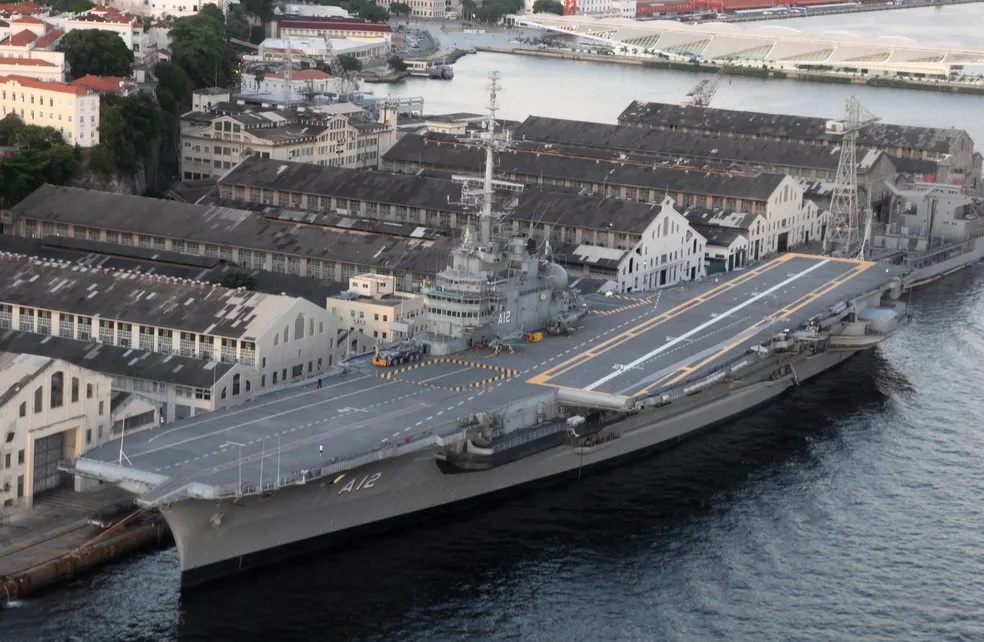Gibraltar has also determined that the aircraft carrier A-12 NAe São Paulo and the tug Alp Center, which carries it, are banned from entering its territorial waters.
However, the ban is not enough to prevent it from entering the Mediterranean, as other countries control the passage, including Spain and Morocco, which is about 15 km wide.
The Turkish medical association, one of the organizations against sending the aircraft carrier to the country, said that the São Paulo should arrive in Turkish territorial waters on September 11.

Despite the Turkish government’s refusal and the call issued by Ibama (Brazilian Institute of Environment and Renewable Natural Resources) for the vessel to return to Brazil, it and the tugboat continue their journey to Europe.
There are various reports about the amount of asbestos on the aircraft carrier, built by France in the 1960s and served under the name FS Foch until the late 1990s. In 2005, the French government reported that the carrier class contained between 160 and 200 tons of asbestos.
The Clemenceau, sister to the São Paulo, which was scrapped in the UK between 2009 and 2010, would have some 760 tons of asbestos removed from its hull.
Dismantled in 1997, the aircraft carrier was sold to a Spanish company in 2003, which intended to dismantle it in Turkey, but France canceled the deal.
Two years later, the French government tried to take it to India, where another Brazilian carrier, the Minas Gerais, was carelessly dismantled.
The attempt was thwarted by Egypt, which prevented the Clemenceau from passing through the Suez Canal. After lengthy discussions, France decided to recover the ship. In 2008, the carrier finally went to Hartlepool, in northern England, where the company Able UK scrapped it.
Ibama decided to cancel the authorization to export the aircraft carrier, São Paulo, to Turkey and determined the ship’s return to Brazil.
In a letter signed by the general coordinator of Environmental Quality Management, Rosângela Maria Ribeiro Muniz, Ibama says that “the authorization issued by Ibama for this movement is suspended, and the Brazilian exporter must manage, at its own expense, the return of the vessel to Brazil.”
If the determination is not complied with, says Ibama, the exporter of the ship is at risk of incurring illegal trafficking of hazardous waste. The vessel was exported by Oceans Prime Offshore, Sok’s maritime representative in Brazil.
Turkey even issued an authorization for the ship’s entry, but the decision imposed conditions, such as ensuring that the ship was inspected before arrival, according to the requirements in the Basel Convention.
The Norwegian company Grieg Green, responsible for the inspection, admits, however, that it did not have access to the entire structure and that the work was further hampered by limited access to the ship’s original documentation, given its age.
On the 4th, the Federal Court of Rio de Janeiro granted an injunction to the São Paulo-Foch Institute to prevent the ship’s departure. When notified, the Navy informed that the request could not be accepted because the vessel was already in international waters.
According to the Turkish embassy, the entry of the ship into the country depends on a second inspection under the supervision of independent institutions and the delivery of an inventory of hazardous materials, with the exact location of asbestos and other waste.
Several options are open, including returning to Brazil at the expense of the Brazilian Navy and perhaps becoming a floating museum or looking for other scrapyards.
With information from Edefa

